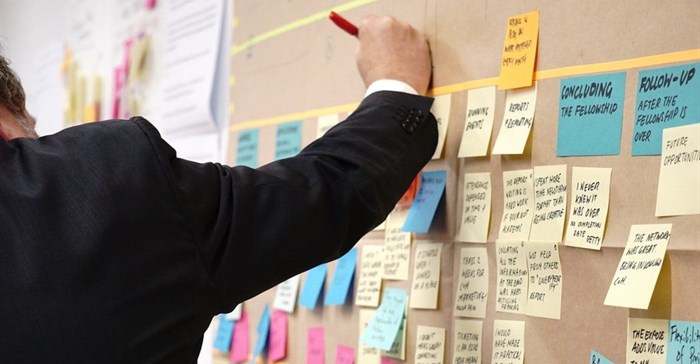In their 2018 White Paper on Brand safety, the Internet Advertising Bureau (IAB) SA added fake news as a 13th category to the global digital advertising industry's "Dirty Dozen" categories to avoid.
This should be self-explanatory, but the Covid-19 pandemic underscores that it is, literally, deadly serious that the information citizens get is credible and accurate. Journalism – across platforms – is again proving that factual reporting is not a nice to have; in a time of crisis, it is of paramount importance for society to function from a place of knowledge.
Given the impact of the pandemic on industry and society as a whole, it is equally essential for any business or brand to communicate their operations and status accurately– and this can only effectively be done in a trusted environment that ensures reputational safety in advertising placement. Put bluntly, avoid placing advertising or messaging alongside inappropriate content. The plethora of fake news sites, and wealth of disinformation that is almost as virulent as the disease gripping the globe, highlights the necessity for brands to rethink their message and the platforms they share it on.
Complex media ecosystem
To ensure brand safety in a complex media ecosystem, it’s vital to look for media platforms that have built up trust and respect. News brands, in particular, have established high levels of respect among their communities by consistently providing useful, verified and relevant content. Editors communicate with their readers and users regularly and know very well how to communicate important information to them. This is where you want your brand to be.
It may seem cost-effective to direct advertising budgets to popular social media sites such as Instagram, Twitter and Facebook. However, when push comes to shove, these are publishers who lack the basic understanding of the importance of ensuring that they don’t host misleading or false information. Curated and credible brands ensure that your content isn’t tainted by association – this is something that isn’t important until it is critically important, or too late.
Brand safety has always been important. However, as we struggle to ensure people get vital and verifiable information about Covid19 and aren’t hoodwinked with fake news and spam, it becomes starkly clear that advertisers have an obligation to ensure brands avoid associating with the dissemination of untruths.
Brands that have important information to impart to citizens about their contribution to the fight, or an evolution in the way they do business, should partner with news brands that have ethics, checks and balances at the core of their business.
Case in point
An excellent example of a brand-safe collaboration to impart important information is the hugely successful Absa/City Press Money Makeover. The project partners six City Press readers with an Absa personal financial adviser, and then takes them on a six-month money makeover boot camp, overseen by personal finance expert Maya Fisher-French.
Now in its fourth year, it has proven to be an excellent way of effectively communicating important information about financial wellness, by obliterating industry jargon and engaging clearly with everyday people – in a trusted publication, enhanced by other, equally credible financial articles.
The ROI has been immeasurable, with former contestants also becoming powerful influencers for Absa, by continuously spreading the word about their successful journeys.
At a time when most South Africans are faced with extraordinary circumstances, editorial independence in journalism has never been more important. Equally so is brand safety in communicating essential services. To do so on a platform with a huge, ready-built, relevant audience and ensure your media partner creates bespoke, relevant content underpinned with strong, ethical journalism makes good business sense.
Did you know? According to a 2019 report by IAB Europe, most brands have a deeper understanding of brand safety, with 77% claiming it as a key priority. More than 80% reportedly used a series of solutions to ensure their ads appear in brand-safe environments: about 93% of brands use blacklists; 91% keyword targeting, about 88% whitelists and about 84%, verification partners.




































